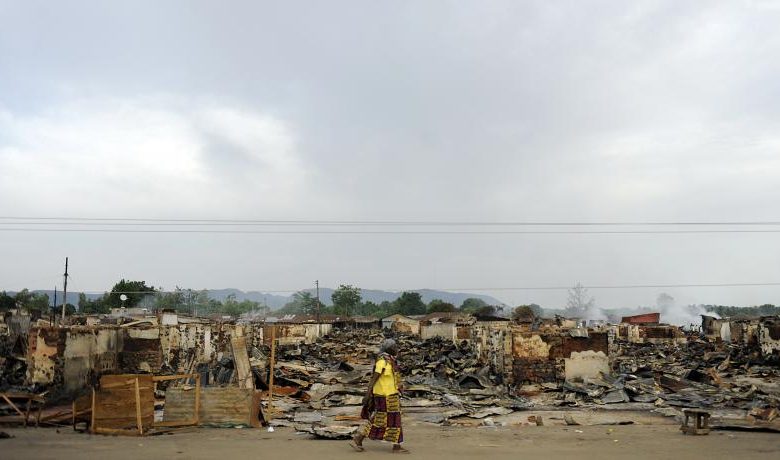Experts Say Strong Local Governments Can Curb Violent Extremism, Insecurity

Experts say a strong and vibrant Local government is essential to deal with the complex and multilayered security crises in Nigeria.
On Friday, June 12, 2020, at an event to mark Nigeria’s Democracy Day, Governor Babagana Zulum of Borno State emphasised the importance of local governments for development and security.
Local Governments are closest to the people and have a constitutional mandate to provide certain social services such as primary education, adult, and vocational education, social amenities, among others..
Asiya Rodrigo Director of the Development Initiative of West Africa and educational consultant, pointed out that local governments were the first and most fundamental place of action for community development, service, and infrastructure provision and sustainability
“Work done or not done at this level impact on primary health care, natural resource development, sanitation and waste management, the flourishing of markets, conservation efforts, community relations, recreational services, land use management, and public safety,’’ she said.
Local governance and social interventions at the grassroot level reduces vulnerabilities such as unemployment, drug abuse and multidimensional poverty that predispose people to crime and violence.
They also serve as mediums for resolving grievances and disagreements before they spiral out of control and become a major human security threat.
Mark Amaza, a sustainable development advocate, said local governments played a role in ensuring low-level communal tensions did not escalate into violence, providing and organising village-level security cooperation and gathering intelligence at the grassroots.
“This is very important considering how poorly policed our rural areas in Nigeria are,” Amaza said.
He said a huge reason local governments were ineffective was because Nigeria’s security structure was highly centralised and did not give sub-national units much room to operate.
Added to this is the fact that Local Government have very little to no autonomy, not just over their funding but also their operations, Amaza said.
Local Government financial and operational autonomy remains a major issue in political and constitutional debates in the country because state governors mostly appoint local government councils and by extension, control the financial allocation to the local governments.
In 2018, Kaduna State held the first electronic-based voting in the country, the E-voting system was used for Local Government Chairmen and Councillorship elections, this was seen as a major milestone for the promotion of local government election and independence.
Similarly, in 2019, the Nigerian Financial Intelligence Unit, recently announced radical steps with effect from 1st June 2019 to strengthen and protect allocations to the 774 local councils. strengthen the councils.
Rodrigo said: “At the moment, sustainable community development is hampered by inadequate financing to local communities, limited autonomy, the dominance of political party allegiances and paybacks between local government chairman and ruling parties in a state, lack of citizen awareness of their rights and powers”.
She added that “poor provision of basic social amenities such as electricity, transport, and telecommunication facilities, inexperienced and unqualified personnel, corruption and misappropriation of funds, lack of accountability and transparency mechanisms, and a general Nigerian syndrome of fire brigade action rather than thorough participatory planning and visioning”
Kolo Kenneth Kadiri, a social behaviour change communication specialist, said, “Radicalisation and extremism occur at a local level. “Traditional and formal governance systems must rise and become first responders for early warning, an early response.”
Rodrigo further said: “Within some communities battling teenage recruitment into terror groups, mother groups, religious bodies and ethnic associations as well as neighbourhood watch teams, local government social workers, and teachers can collaborate to prevent and intervene in cases.”
Support Our Journalism
There are millions of ordinary people affected by conflict in Africa whose stories are missing in the mainstream media. HumAngle is determined to tell those challenging and under-reported stories, hoping that the people impacted by these conflicts will find the safety and security they deserve.
To ensure that we continue to provide public service coverage, we have a small favour to ask you. We want you to be part of our journalistic endeavour by contributing a token to us.
Your donation will further promote a robust, free, and independent media.
Donate Here




